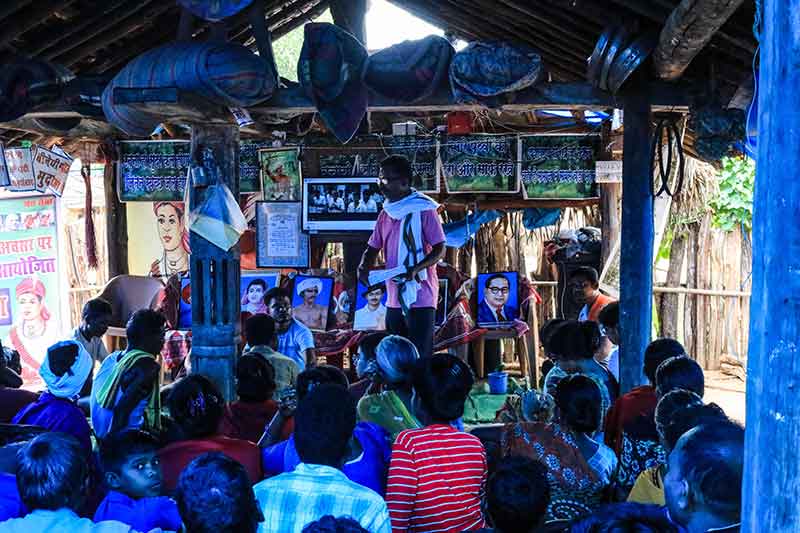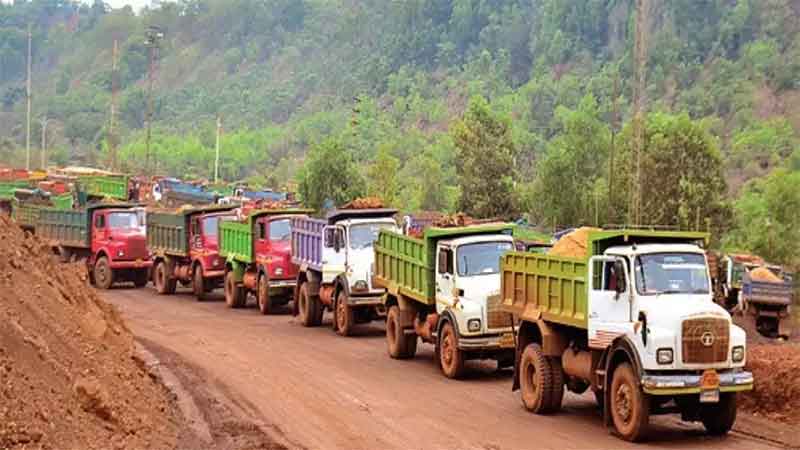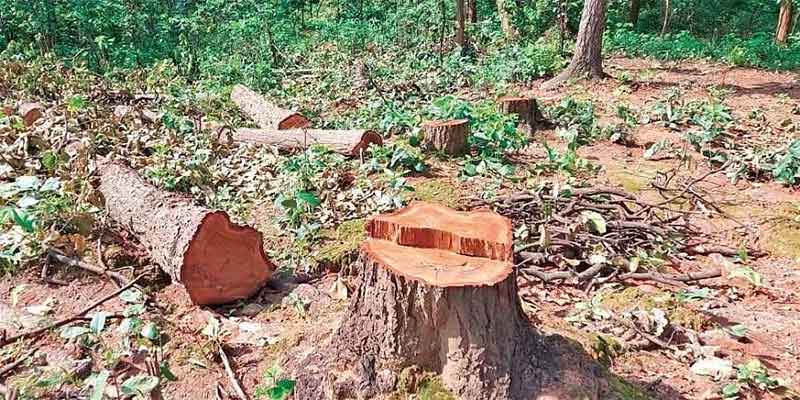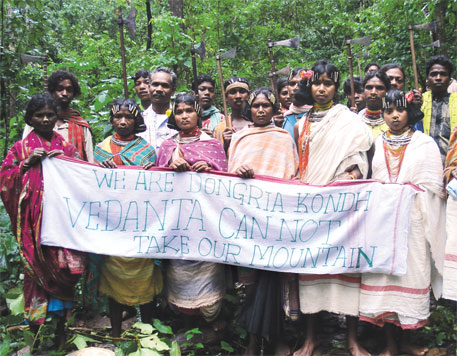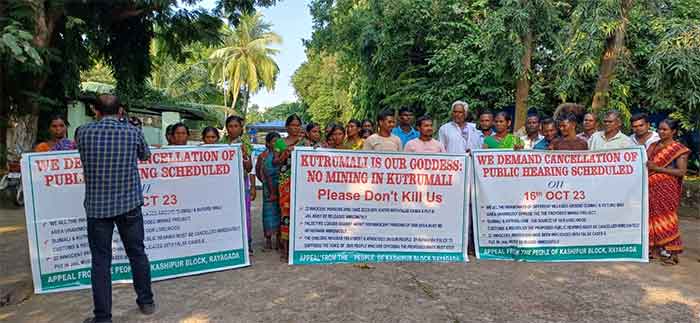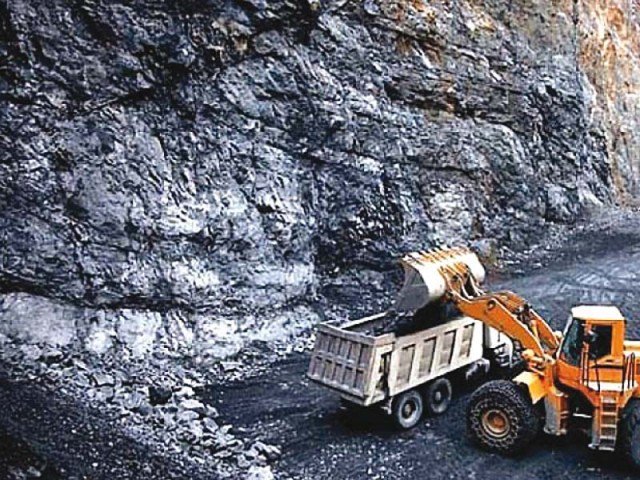
A draft proposing amendments to the Mines and Minerals (Development and Regulation) Act, 1957, was released on February 9, 2021 on the website of the Ministry of Mines seeking public comments until February 24. Just as the three new farm laws that are being vigorously opposed by farmers camping on the border of the national capital for nearly three months, the new amendments to the MMDR Act too could be challenged in court, given that they infringe on the rights of state governments, the owners of minerals within their boundaries.
The draft notification states that mineral blocks not auctioned by state governments could be auctioned by the Centre.
Civil society organizations working in the mining sector and looking to the welfare of mineworkers have vehemently opposed proposed amendments to the laws governing mining. The amendments would go against even the National Mineral Policy, 2019, they say. Intergenerational equity, the principle by which government must cater not just to the well-being of the present generation but also of those still to come, would be undermined, civil society organizations argue.
Under the policy of 2019, an inter-ministerial body was supposed to institutionalize the mechanism by which sustainable mining would be operationalized, keeping in mind the need to preserve minerals, an exhaustible resource, for generations still to be born. No such body has yet been constituted.
Goa Foundation, which has engaged in mining related work for two decades, has opposed changing the laws related to mining in three letters written to the government in February 2021.
On February 16, 2021, Director Claude Alvares of Goa Foundation wrote on the proposed new Rule 23 A of the draft Minerals (Other than Atomic or Hydrocarbons Energy Minerals) Concession (Amendment) Rules, 2021. This draft was released on January 21, 2021 – and the time for public responses was set as February 5 – a period of just one fortnight.
Alvares pointed out that under the Right to Information Act the government is obliged to publish all relevant facts while formulating policy; also, the pre legislative consultation policy of the government provides that the justification for legislation and essential elements of the proposed legislation should be kept in the public domain for at least 30 days, so time is offered for feedback. “We are writing to lodge a protest as neither has the minimum 30 days been provided, nor is there any analysis of the broad financial implications of the proposal or amendment,” Alvares writes.
Minerals are the nation’s “family gold”, Goa Foundation writes. The government is a trustee of this wealth, and it must ensure that it is “kept whole, in real terms”.
“Extractors are simply outsourced service providers helping convert inherited mineral wealth into financial wealth,” Alvares explains. This makes it especially important that all participants in the mineral supply chain are of utmost integrity; it is thus disappointing that there is no requirement in the MMDR Act to implement integrity due diligence for all participants in the supply chain. There are no eligibility criteria for mining lease bidders to ensure they are fit and proper persons to manage the nation’s family gold.
“In almost all cases of illegal mining, the minerals are for sale, not personal use. This is money laundering. Further, it is no secret that separation movements within India receive some of their funding from extractors,” Alvares writes, explaining that even those earlier prosecuted and convicted for illegal mining or money laundering would still be eligible for handling mineral wealth again. “Known thieves and people with questionable integrity must be excluded from managing the family gold,” he writes.
The proposal to allow only the written complaints of those “authorized in this behalf by the Central or state governments” to be taken cognizance of by courts also goes against the principle that the nation’s mineral wealth is our common inheritance, Goa Foundation argues.
On February 17, 2021, Goa Foundation wrote a second letter, this time on the proposal to provide an incentive for early extraction from auctioned off leases. This proposal is touted as a means to reduce export dependence and further Atmanirbhar Bharat. “The recommendation specifically dealt with in this communication amounts to how we can, in effect, speed up the sale of the family silver,” Alvares writes.
National Mineral Policy 2019 ignored
The National Mineral Policy 2019 had provided for measures to ensure “sustainable mining”. The 2019 policy had also laid down the need to examine region-wise ceiling for annual extraction. These points are ignored in the draft notice. “What is the point of NMP 2019 if it is to be ignored, or its provisions cherry picked?” Alvares asks.
Any incentivizing of early extraction should come with proper rebates for mineral bearing states and full disclosure of the rebate in the statements of revenue foregone. The financial implications of the proposal are unclear, and the opaqueness of these moves could cause conflict and litigation, the letter warns.
In a final letter on February 18, 2021, Goa Foundation cites the notice uploaded on the Mines Ministry website on February 9, proposing to amend MMDR Act. The director of the foundation states that the list of 143 blocks mentioned in the government notice where central government exploration agencies had handed over geological reports is not available in the public domain. The government notice states that of these 143 blocks, only seven had been auctioned by the states. There is also mention of 334 blocks where leases had expired on March 31, 2020.
“In the absence of this information – and adequate time to analyze it – our comments can only be of a preliminary nature,” Goa Foundation writes.
Alvares protests the proposal to allow mining until reserves are exhausted – there will always be bedrock; no mine will ever be closed. “This implies that as far as land use goes, each and every mine would need to be recorded as a permanent change in use in land records, not temporary. By extension, it would be incumbent on them to actually purchase the surface rights from the land owners,” Alvares writes.
A mine may have multiple owners, and when an old lease has expired and a new lease still not granted, the state government may have to take over maintenance – in Goa, for instance, there are cases of drowning deaths when villagers have gone swimming in abandoned quarries.
It is proposed that all licences and rights granted to a lessee would remain valid until the exhaustion of the mine – this would imply that such clearances are attached to the mine, not its owner. The proposal also does not provide for any exceptions, so this is “mind-boggling in scope,” writes Alvares. Such rights and clearances are usually for a certain period and come with some duties and liabilities. This proposal will radically alter the regulatory regime in mining, making a mockery of federalism and the separation of powers.
Since 2015, changes in law have ensured that auction is the only mode for allocation of fresh mining leases. Under the new proposal, auctioned captive mines will not have to pay premia or very much by way of royalty, the letter explains. Under such circumstances, the government must ensure that mineral bearing states are reimbursed for their losses.
The letter vehemently opposes the proposal to enable the Centre to force state governments to auction mines. The reason offered for this in the government notice is the need for continuous availability of minerals and stability in prices – it is noted that revenue will accrue to the state government. Alvares underlines the fact that when minerals are extracted, this wealth is transformed into financial capital. “It is not ‘revenue’ … we are like addicts, selling off the inheritance and cheating future generations of their rights,” the letter notes. Sale proceeds should ideally be invested through the National Pension Scheme framework and the income from it should be distributed to citizens as dividend, equally among all owners, the letter suggests.
Bhushan Patil, who runs The Sustainability Living and Integrated Solutions Store in Pune, encouraging people to buy organic vegetables and live a lifestyle that does not burden the earth, says, “We can never fully know the needs of future generations. Who would have thought, a century ago, that mobile phones would have been so ubiquitous, and the materials needed to produce them, like lithium, would be needed in such large quantities?” He cautions that any policy of mineral extraction must consider such needs, that we cannot yet anticipate for future generations.
February 24 was the last day for receiving comments from the public on the proposed changes in the MMDR Act.
Rosamma Thomas is an independent journalist
GET COUNTERCURRENTS DAILY NEWSLETTER STRAIGHT TO YOUR INBOX

